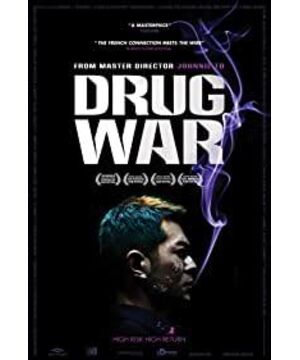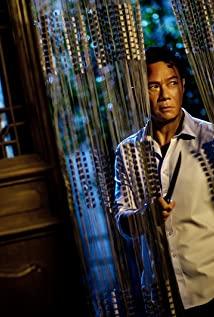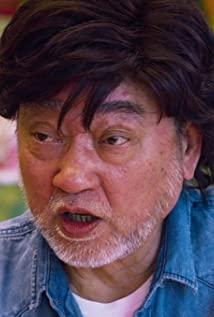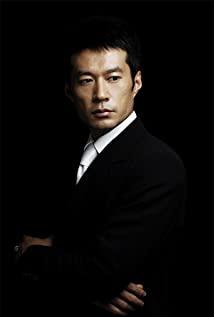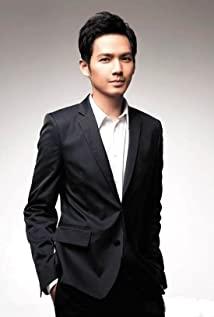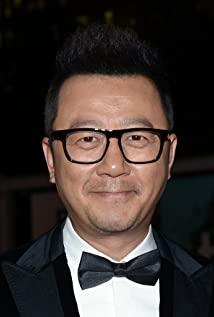I went to Hong Kong for the first time a few years ago, and I was standing by the sea in Kowloon with a friend who lived here and looking at Hong Kong Island. He pointed to the tall buildings on the opposite bank and counted me one by one, telling me that the owners of these buildings have been in succession over the past ten years. After changing hands, their new owners all come from the same place: the mainland. On the outside, Hong Kong is still the Pearl of the Orient that blooms gorgeously every night. It is the same or even more coquettish from many years ago, but its heart and inner blood flow have gradually been subordinated to its new owner, whose emotions are extremely complicated. ——A strong body, strong wealth, majesty, majesty, and black and white, a boss who it extremely despises his birth but is unable to contend with. In an Indian restaurant on Hong Kong Island, he told me a story. The son asked his father: After the reunification, will Hong Kong people like us all have our jobs smashed? How will we make money in the future? Dad pointed to the kitchen and said to his son: There is a piece of meat in the refrigerator in the kitchen. Son, please bring it to me. The son ran to the kitchen obediently, took a piece of greasy fat from the refrigerator and brought it to his father. Dad didn't change his face and said to him: You put it back again. The son looked confused but still obeyed his father's orders and put the meat back in the refrigerator. Dad lit his son's hand and asked: See what's in your hand? The son looked down, full of fat left in his hands. Dad knocked his son on the head: Understand, Hong Kong will make money like this in the future. This is a relatively obscure story, and I only understood it under the explanation of my friends. After 1997, Hong Kong should have completely changed the mode of its economic operation: before that, it was a British colony, an Asian financial center, a world trade cargo transit center, and the world’s most standard guaranteed by a sound economic and legal system. Model of the capitalist system. After that, with the potential shift of the political system's center of gravity, its independent advantages disappeared, but the return brought about a huge unstoppable unilateral "dark" cash flow from somewhere. Where did the stock's strong source of "liquidity" come from, what its scale is, and why it must pass through or even stay in Hong Kong, here is not a table. But the impact it has on Hong Kong is what we can all see: its appearance is still prosperous, but its inside is tightly leaned on the shoulders of the “boss” who transports cash like a rickets, or It is said that only the latter feeds it continuously, so that its hands are covered with the fat left by the big meat, can it have enough nutrients to maintain a glamorous and pretty appearance. This can actually be replaced by another metaphor: Just like a drug addict who is dependent on drugs, he knows the poison of his body and spirit, but he can’t get rid of its temptation. , In order to maintain his own "youth" as always, he can only repeatedly give in and "sell" his physical, spiritual and moral possessions in exchange for the continuous "cash of life" that he depends on for survival. It is against this background that several generations of Hong Kong people have developed extremely complex emotions and feelings towards this "boss." In my opinion, it is this emotion that supports the core of "Drug War". "Drug War" is very special in the drama. It is not a rival drama between two heroes as we seem to be, but in many meticulously portrayed super supporting roles (Sun Honglei is one of the biggest) Surrounded by a one-man show, even if the formally dazzling supporting actors dominate the main stage, what they set off on the core is only a character: he is lonely on the outside, extremely contradictory on the inside, elusive to judge, and sometimes betrayal and sometimes betrayal. Cowardice, sometimes cruel, and sometimes emotional, intertwined with good and evil, love and hatred, suffering mentally, but super strong in action. This character's name is not only Gu Tianle or Cai Tianming, he is more in line with the character of a city that is trapped and has no choice but wants to make a living in the cracks, so his name should actually be Hong Kong. Du Qifeng and his team since 1997 have buried insinuations about the geopolitical patterns of Mainland and Hong Kong in many of their plays. For example, the two episodes of "Underworld" are already similes with very obvious intentions. The beauty of "Drug War" is that it abandons the metaphorical connection of specific facts, and personifies the relationship between land and port into the character of the characters and the connection between them. He first set up two different levels of moral opposition for the film: In the superficial text, the police chasing down drug dealers is a matter of course and need not be questioned. The setting of this layer for the general audience makes the audience easily accept this positive ) The opposing position of the evil (drug dealer) allows the latter to smoothly enter the surface plot. But in fact, Du Qifeng has been affected by film noir all year round, and the distinction between good and evil in his past works has long been very vague. In "Drug War", such a film noir model is buried in the subtext: When we get rid of Open up the pre-set positions and some symbols-such as police, drugs and drug dealers-the meaning of the prevailing morals and ethics, and begin to carefully observe the logic of Sun Honglei and his teammates. This is actually a group of people leaving the interpersonal relationship. The faith, loyalty, and trust of people who are unscrupulous in order to achieve a specific purpose. Their practice of coercing Gu Tianle to trap other drug dealers is essentially with the logical characteristic of using "black" means to coerce the "black" to eat the "black". At this point, Johnnie To is not like Melville in "Samurai" Or the total calmness in "Red Circle" allows the audience to subvert the pre-established position of good and evil through purely cinematic means, and realize the reverse of moral understanding. Lao Du adopted the unique skills and cleverness of Hong Kong filmmakers, and used unusual symbolic methods to puncture the surface text at a few points to expose it: so we saw the interrogation room being blocked by the back of the police. The sign read "Public Security Forced a Confession", and all the poison boats that went out to sea were waving national flags in the wind. A group of powerful and well-trained police officers finally went shopping with two deaf and mute people and several "family" drug dealers who were dragging their families with them. At the last drop of blood. . . Through this symbolic method, he allowed the "right" to be infiltrated by evil, the "evil" swaggered and flaunted the banner of righteousness, and the powerful "right" faced the weak "evil" and weakened and weak, etc. ……Du Qifeng conveyed the intention of his subtext to the surface text rather obscurely through a very ridiculous little technique. Having said that, I can actually respond to the doubts about the logic omissions in many details of the film. It is not Du Qifeng's negligence or deliberately wanting to sell the flaws, but he does not care about it at all. The purpose of shooting "Drug War" is only two: Attract the audience with rough visual style and gun battle scenes, and realize the metaphor of the relationship between land and port with the laying of subtext. These two points are complete and the film is established. As for the others, Lao Du has no time and no need to fine-tune the film as a quick shooter. At this point in the interpretation, the real key figure, Gu Tianle, entered the line of analysis. In the film, the only motive he keeps revealing publicly is to "survive". But carefully reviewing his unpredictable attitude and repeatedly changing position, it seems that under the external actions of obedience, conspiracy, betrayal, or cold-blooded, he himself hesitated among the choices that were not fully disclosed. When he was holding a gun to subdue two drug overdose drivers on the highway, the confusion of choice emerged: this was an opportunity for him to risk his life and escape. When we translate these two choices in words, are they actually "survival" or "freedom"? At this moment, Gu Tianle chose to "survive", but this moment laid the groundwork for the end, because he chose "freedom" at that time. Here, if we change the name of Gu Tianle's character from Cai Tianming to "Hong Kong", and Sun Honglei's name from Zhang Lei to "Boss". The corresponding relationship from the perspective of this geopolitical form is almost clear and can no longer be clear. In Du Sir's eyes, the "Hong Kong", which was strongly held hostage by the "boss", has faced a difficult choice over the years whether to "survive" or "freedom." It is for this strong desire to "survive", for Being able to touch the fat of that layer of flesh with both hands to support one's own survival, just like Gu Tianle, gradually slipped from the values that he originally agreed with, and became an unfaithful "tool" and "doll". But while saving lives, "Hong Kong" has also fallen into the same confusion as Louis Koo, shouldn't it turn to the dangerous "freedom"? In the movie, Du Sir gave him a chance to try. At least what we see is the end now, after "freedom" was finally shattered by the "boss" (does it indicate that death will continue to be subordinated)? The terrible assertion of the connection), Gu Tianle even lost the opportunity to "survive", no matter how he "selled", what will eventually be ushered in is self-destruction. In "Drug War", we can clearly see that Du Sir is full of complex and tragic attitudes of contempt and indispensability for this "Hong Kong". In order to survive, in his values, his characters are also the place where he lives, constantly giving up his bottom line. This kind of helplessness stems from the huge threat of destruction once it turns to try to fight back. Such a helpless, passive, pity, and regretful emotional atmosphere and ideological values similar to the sighs of swan are the real core of "Drug War" after "turning out the clouds and seeing the fog." The spiritual essence of a standard "film noir". (As for the other ending in the legend, Gu Tianle’s fate of escaping from fighting again and then escaping does not represent the unrealistic hope of Duwei and others for the future fate? The final abandonment is one reason that does not meet the censorship, and its core meaning Isn’t the huge unreality of the above convincing...) Such a helpless, passive, pity, and regretful emotional atmosphere and ideological values similar to the sighs of swan are the real core of "Drug War" after "turning out the clouds and seeing the fog." The spiritual essence of a standard "film noir". (As for the other ending in the legend, Gu Tianle’s fate of escaping from fighting again and then escaping does not represent the unrealistic hope of Duwei and others for the future fate? The final abandonment is one reason that does not meet the censorship, and its core meaning Isn’t the huge unreality of the above convincing...) Such a helpless, passive, pity, and regretful emotional atmosphere and ideological values similar to the sighs of swan are the real core of "Drug War" after "turning out the clouds and seeing the fog." The spiritual essence of a standard "film noir". (As for the other ending in the legend, Gu Tianle’s fate of escaping from fighting again and then escaping does not represent the unrealistic hope of Duwei and others for the future fate? The final abandonment is one reason that does not meet the censorship, and its core meaning Isn’t the huge unreality of the above convincing...)
View more about Drug War reviews


